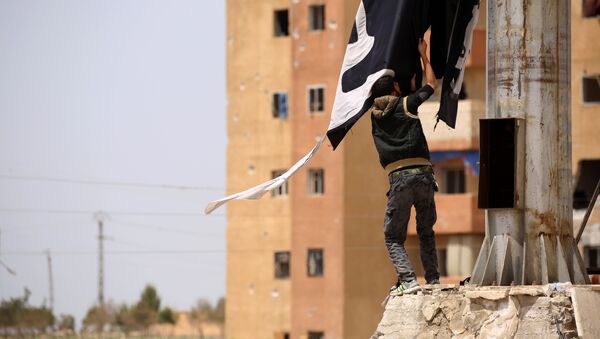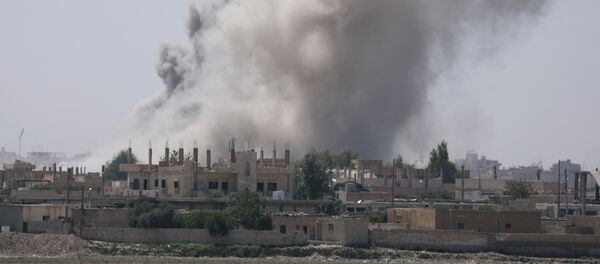Defense and intelligence officials told the AP that upwards of 4,000 Daesh terrorists remain positioned in Iraq, even though Mosul has been liberated. Friday’s report added that 7,000 Daesh militants are still at large in Syria.
As Daesh’s numbers diminish, the problem of jihadist insurgencies in the Middle East continues to loom. The AP distinguished "militants" from "supporters:" their sources said there are about 8,000 individuals who assist Daesh but are not formally part of the group in Iraq and Syria.
The Council on Foreign Relations’ Max Abrahms told Sputnik that the "helpers" may inadvertently support Daesh operations, for example by taking on roles in economic or logistical operations, without expressing an ideological affiliation with the group.
Daesh "supporters" include women, children and people generally seeking to advance their own interests. They might do this by paying a tax to both al-Qaeda and Daesh in exchange for safety. Supporters "do whatever the militants want them to" and "stay out of their way."
One of the most salient features of Daesh is that it is "unselective about who can join," Abrahms said. The "highly international" terror group basically has an "open-door policy" for new members.
In June 2016, the US State Department estimated that "in excess of 40,000 total foreign fighters have gone to the conflict [in Syria] and from over 100 countries." The UN estimated in April that at least 30,000 foreign militants were in Syria, although "some foreign fighters have already returned to their home countries, spreading violence in their own communities."
A major route for combatants to reach Syria has been Turkey. The Turkish border has essentially been "porous," Abrahms explained. "Turkey may be the biggest state-sponsor of [Daesh]," but their plan backfired to some extent when Daesh launched terror attacks on Turkey, Abrahms said.
"Very often the Russian contribution to fight Daesh goes unrecognized," the US-based expert told Sputnik.
"The approach by some of our partners to send in tens of thousands of tons of weapons, and looking the other way as these foreign fighters come into Syria may not have been the best approach,” US Special Presidential Envoy for the Global Coalition to Counter ISIS Brett McGurk said at a Middle East Institute event this week.
— Syricide (@Syricide) July 28, 2017
"Al Qaeda has taken full advantage of it… Idlib is now a huge problem," McGurk added. The city of Idlib was captured last Sunday by jihadists describing themselves as Hayat Tahrir al-Sham (formerly the Nusra Front), a group that ideologically aligns with Al-Qaeda. The city had been under the control of Ahar al-Sham rebels.



